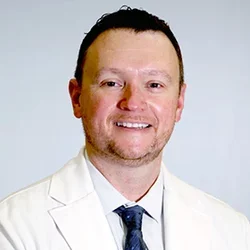Winter 2024 Newsletter

In This Issue:
- Note from Director(s)
- Profile of Dr. Chang and Colleagues' CDPH Grant
- New Additions to the Easton Center
- Clinical Trials
- Upcoming Events
The Mary S. Easton Center for Alzheimer’s Research and Care at UCLA has very active teams working on basic research, drug discovery, biomarkers for early diagnosis and clinical activity including clinical trials, cognitive testing, and patient care.
Note from Director(s)

By: Jason Hinman, MD, PhD, Co-Center Director, Mary S. Easton Center for Alzheimer’s Research and Care, and Associate Professor in Residence and Vice Chair of Research, Department of Neurology
Every day the news is filled with information on brain health. From blueberries to yoga to mindfulness as well as new diagnostics and treatments, everyone has a recommendation on how to take care of your brain. Protecting the brain has long been the goal of most neurologists, including those at the Easton Center, but increasingly we have the tools to execute on this goal. With the exciting revolution in Alzheimer’s and dementia care happening right now resulting from new drugs and realized treatment options, it is no coincidence that we are seeing an awakening of the importance of valuing one’s brain health. The American Academy of Neurology is about to release a paradigm-shifting policy statement on brain health that will change this challenging topic from something you address with your physician in your 6th, 7th, and 8th decades as symptoms of memory impairment or slowing of motor functions set in, to a topic you address with your child’s pediatrician to help take steps to preserve brain health across the lifespan. This seemingly radical idea is driven by the recognized need to take steps much earlier in life to help reduce the risk of cognitive impairment and dementia later in life. The advent, approval, and access to new drugs for Alzheimer’s disease (AD) provide a spotlight on this idea as we recognize that not every patient will be eligible for these blockbuster therapies. A variety of conditions combine to drive declines in brain health, some in ways we already understand but many in ways we are just beginning to comprehend. The Easton Center is committed to understanding this diversity of drivers of poor brain health and helping everyone realize the best possible brain health for as long as possible.



